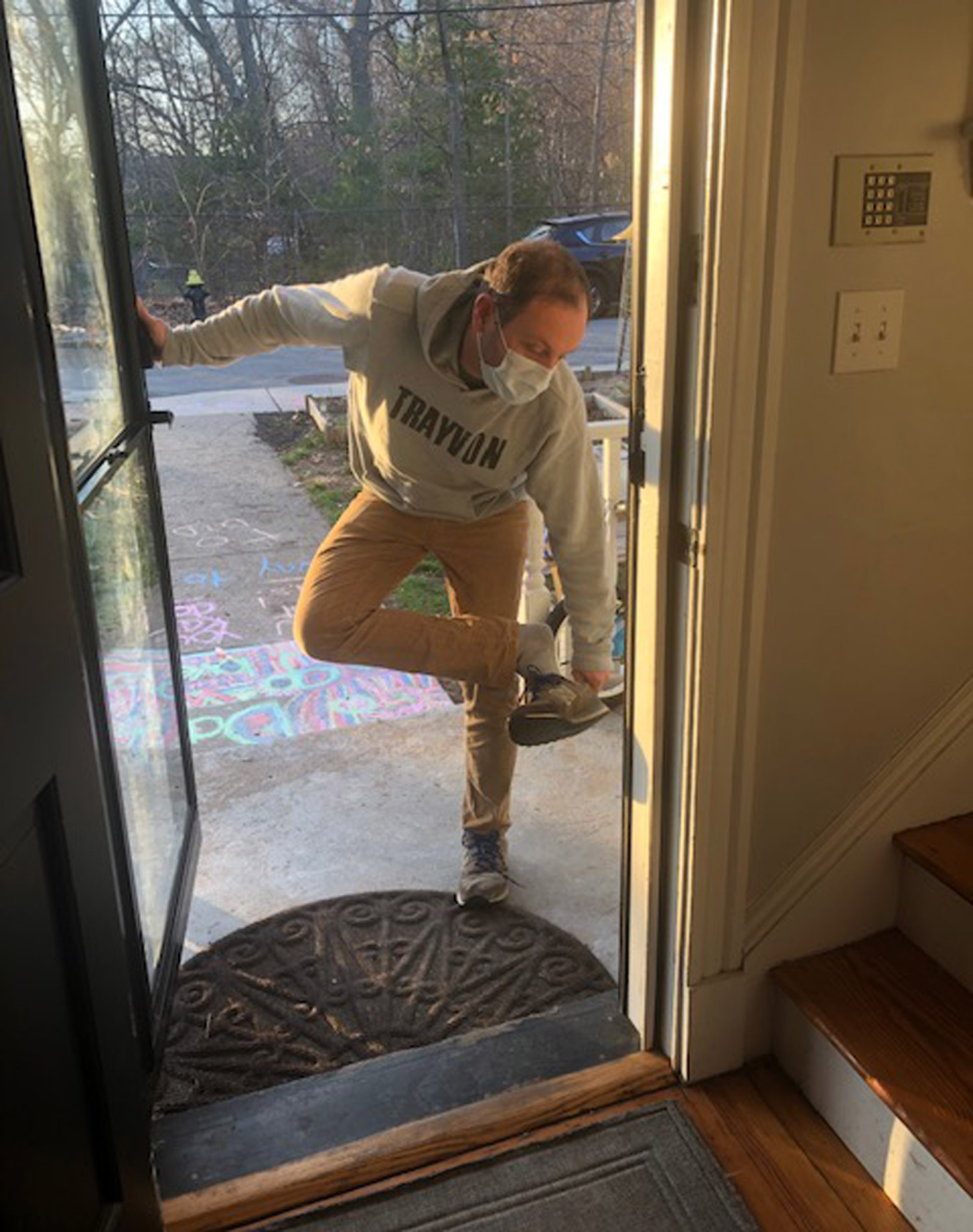How One Infectious Disease Expert Researches Coronavirus While Treating Patients Who Have It
BU physician-scientist Joshua Barocas works on the front lines of the pandemic at Boston Medical Center

Joshua Barocas has what he calls a “dad decontamination protocol,” essential for a family man who cannot take his work home from the office: as a physician-scientist working at Boston University School of Medicine and Boston Medical Center (BMC), he both researches the novel coronavirus in the lab and treats patients infected with it in the clinic.
“I have two little kids and a spouse,” says Barocas, an assistant professor at the School of Medicine, whose teaching hospital is BMC. “We have a dad decontamination protocol that involves taking off my shoes before coming in the house. If I’ve been in the hospital, then I take off my clothes before I come into the house and wash up before I do anything active with the family.”

To date, the SARS-CoV-2 virus that causes COVID-19 infections has been detected in more than 58,000 people and killed more than 3,000 in Massachusetts. Barocas coleads an interdisciplinary infectious diseases research project, predating the pandemic, that’s now studying the coronavirus’ effects on some of the most vulnerable patients—those with substance abuse and other underlying disorders.
“We estimate that about 4.6 percent, if not more—probably nearing 5 or 6 percent—of the population of Massachusetts has opioid use disorders,” Barocas says. BMC, as Boston’s safety net hospital for disadvantaged patients, sees a lot of people with opioid use disorders, “working literally around the clock,” he says, a circumstance that preceded the current surge of COVID-19 patients flooding state hospitals. No hospital is harder-hit than BMC, which recently saw 70 percent of all admitted patients ill with the coronavirus.
Barocas spoke with The Brink about his research and how it’s informed by his frontline work treating patients.
Read the Q&A on The Brink. Story written by Rich Barlow.